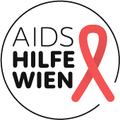It’s important to be aware of sexually transmitted infections and sexual health. So let’s talk about it, because the increase in infectious diseases such as syphilis, gonorrhea and chlamydia is also an issue in Austria.
Dr. Mirijam Hall, Chairwoman of Aids Hilfe Vienna
Vienna (OTS) – The World Health Organization (WHO) recently reported a global increase in syphilis. There is therefore a need for increased awareness and preventative measures to contain this sexually transmitted infection (STI), appeals Aids Hilfe Vienna. As a health organization, Aids Hilfe Wien explains what syphilis is, how it is transmitted, what protective measures can be taken and where you can get tested. Dr. Mirijam Hall, chairwoman of Aids Hilfe Vienna: “It’s important to be aware of sexually transmitted infections and sexual health. So let’s talk about it, because the increase in infectious diseases such as syphilis, gonorrhea and chlamydia is also an issue in Austria.
“ And further: “By using condoms,
Regular testing and with open communication, together we can help stop the spread of syphilis. We therefore call for STI testing and treatment services to be made easily accessible to promote early detection and prevention.”
Dr. Hall emphasizes that early diagnosis and treatment can prevent serious health consequences and that the spread of the infection can be stopped. There are numerous testing options available in Austria that enable early detection and treatment. Further information can be found at www.aids.at.
Facts & figures – what you should know about syphilis
Sources:
https://www.sozialministerium.at/Themen
https://www.ecdc.europa.eu/sites
What is syphilis?
Syphilis is a bacterial infection caused by the bacterium *Treponema pallidum*. The disease progresses in several stages and, if left untreated, can cause serious health complications.
Increase in syphilis cases worldwide
The WHO has released alarming data showing a significant increase in syphilis cases worldwide. This increase affects both developed and developing countries. Reasons for this increase include increasing international travel, declining condom use and inadequate information about sexually transmitted infections.
Distribution and frequency
According to estimates by the World Health Organization (WHO), there were approximately 7 million new syphilis infections worldwide in 2020. According to the latest reports from the ECDC, reported cases increased significantly in 2022 compared to the previous year, with gonorrhea cases increasing by 48 percent, syphilis by 34 percent and chlamydia diseases increasing by 16 percent.
There were over 35,000 cases of syphilis recorded in the EU in 2019, with the majority of those affected being men. People with frequently changing sexual partners, men who have sex with men (MSM), and HIV-positive people are at increased risk of developing syphilis. Repeated infections are also not uncommon.
Transmission of syphilis
Syphilis is primarily transmitted through sexual contact. This includes vaginal, anal and oral sex. The bacterium can be transmitted through tiny injuries to the skin or mucous membranes.
To reduce the risk of a syphilis infection, Aids Hilfe Vienna recommends:
1. Use of condoms: Condoms provide effective protection against syphilis and other sexually transmitted infections when used correctly and consistently.
2. Regular Tests: People with multiple sexual partners or those who belong to a risk group should be tested regularly for syphilis and other STIs. Tests are offered by general practitioners, specialized clinics and health centers. Aids Hilfe Vienna also offers anonymous tests for syphilis and other STIs.
3. Education and communication: Open and honest communication with sexual partners about sexual health and test results can help minimize the risk of infection. Under www.lustaufreden.at You can find further information on the topic of sexual health – the Aids Hilfe Vienna campaign of the same name runs until the end of the year and explains why it is important to talk about sexual health and who you can actually turn to if you need it.
Tipp: In addition to the year-round testing options at the Aids Hilfe Haus Vienna, the Aids Hilfe Wien also offers free HIV, syphilis and hepatitis tests and advice on June 6th and 7th from 3:00 p.m. to 8:00 p.m (last acceptance: 7.30 p.m.) in the Pride Village on Rathausplatz.
Questions & Contact:
AIDS Help Vienna
Juliana Metyko-Papousek, Bakk.phil.
+43(0)1/59937-82 /
metico@aids-hilfe-wien.at
